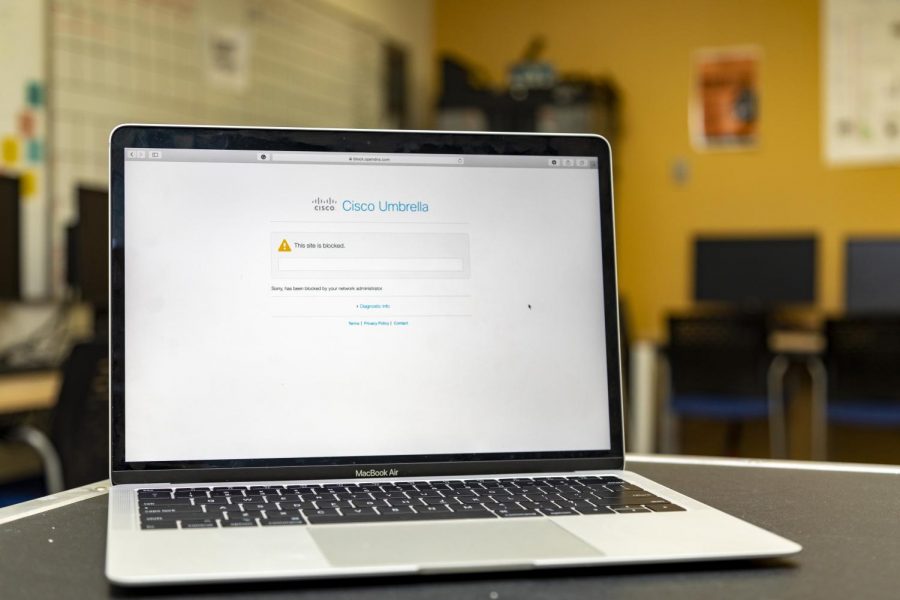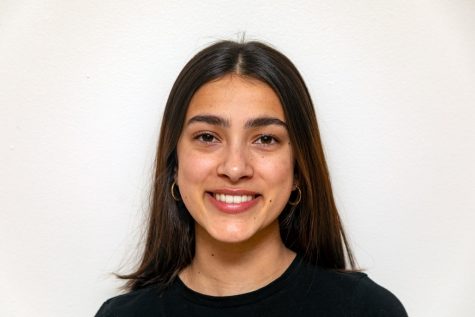To Prevent Distraction, La Salle Restricts the Sites Students Can Access
Cisco Umbrella is one of the two content filters that block sites at La Salle.
February 26, 2020
Before Notability, Schoology, and PowerSchool, students at La Salle used mostly notebooks and folders for their schoolwork, not apps and websites.
Nowadays, we still use notebooks and folders, but our academics rely largely on technology with the addition of iPads to classes in recent years.
While this technological implementation has certainly had positive effects at La Salle, there are also negative sides to classrooms’ reliance on iPads, one of them being the distractions they can provoke.
Some schools, La Salle included, block certain sites from being accessible while using the school’s WiFi. For example, students at La Salle are unable to use apps including Snapchat, Instagram, and Netflix, among other sites, on the campus network.
Restrictions are put on on apps and websites that are found to be distracting or may contain sensitive content that wouldn’t be needed for school.
“I think it’s a way to help the students to focus on… using an iPad or electronic device appropriately, also to limit distractions,” said Mr. Mario De Ieso, Vice Principal of Academics. “It’s not used necessarily for censorship, or to be a police state… but more used to help people make probably better choices.”
La Salle subscribes to two content filtering services, SonicWall Content Filter and Cisco Umbrella Web Filtering, which automatically block thousands of sites. Some categories that are blocked by these filters include academic fraud; games; illegal downloads; personal VPNs; and violence, hate, or racism.
Students may have a variety of opinions as to whether or not site restrictions should be in place, but with mandatory iPads during school, it could be easy to get lost in off-task apps and random websites.
“I feel like when you’re actually supposed to be doing work, then you shouldn’t go on Netflix,” junior Nick Riley said. “But if you have nothing to do, I feel like certain stuff shouldn’t be restricted.”
Though every school uses different amounts of restrictions and blocks different websites and apps, most kids see the same outcome, according to an article by the New York Times that asked students about web filtering at their schools. The article said that various students “resented how filters stymied their ability to do online research on a range of subjects — on plants, for example.”
At La Salle, a main goal is to educate students with comprehensive and reliable material. “We would never say, ‘oh sorry, you can’t do that project because you don’t have the access to that information because that site is blocked,’” Mr. De Ieso said. “We would work with a student to get access to the research, or the sites that they need.”
Some students find website restrictions helpful.
“[Site censorship] makes me feel controlled as a student because they’re pretty much restricting you [from] apps that are a distraction for class,” freshman Adan Luyamba said. However, he said, “kids are frequently using VPNs to block that.”
A VPN, which stands for Virtual Private Network, is a tool that allows users to access apps and websites that were originally blocked on the WiFi that they are using. “[VPNs are] not allowed here at La Salle because it just doesn’t provide clarity or transparency as to what students may be doing,” Mr. De Ieso said.
However, many students at La Salle are able to use VPNs and may not see the reason for the restrictions on apps and websites when they can override it. “People can just use VPNs anyway,” sophomore Sebastian Gang said. “It’s really just like the restrictions don’t even really matter because people just get around them.”
The future of technology is uncertain, but the use of it in schools, at this point, is sure to remain. Technology is not leaving our world, but will only grow — and for now, site restrictions are here to stay as well.





